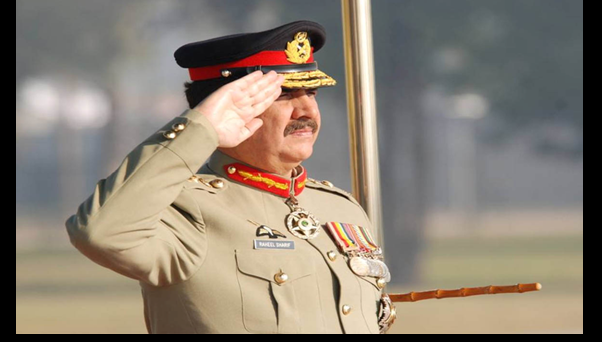Will Pakistan's Army Chief Retire As Scheduled in November?
NEW DELHI: Will Pakistan’s Chief of Army Staff General Raheel Sharif retire as scheduled in November, or seek a second term in office? This is a major question in both India and Pakistan, as while General Sharif has announced that he will not seek a second term, his soaring popularity amongst all sections of Pakistanis could well encourage Prime Minister Nawaz Sharif to insist that he stay on in office. More so at a time when Afghanistan is increasingly troubled, and Balochistan has been added to the Indian agenda against Pakistan by the current dispensation.
By all accounts General Sharif should have been more unpopular than former Army Chief and President General Pervez Musharraf whose military operation on Lal Masjid in Islamabad actually dug what can euphemistically be called his grave. Sharif has conducted Operation Zarb-i-Azb, a ruthless military offensive against militants and extremists in Pakistan. He has also cracked down on criminal gangs in Karachi, bringing some relief to the violence torn city. These two military operations, conducted without political statements or eyeballs, has added to the General’s popularity in his country with a well known Pakistani academic telling this reporter earlier, “he is seen as having restored the professionalism of the Army.”
The social media has often been flooded with demands that General Sharif continue in office. Earlier this year, following the adulatory messages, the Army Chief’s spokeperson General Asim Bajwa tweeted, “speculations about extension in service of COAS are baseless. COAS said, “Pakistan Army is a great institution. I don’t believe in extension and will retire on the due date. Efforts to route out terrorism will continue with full vigor and resolve.”
There is little to indicate that there has been change in this articulated position. In fact, as diplomats here point out, the reluctance could also be from the fact that his predecessor General Ashfaq Kayani while fairly popular during his term, lost the goodwill of the Army when he sought and took an extension. This blocked the promotions of senior army officers, and the emerging consensus amongst Pakistan hands on both sides of the border is that the current Army chief will not make the same mistake.
Seniority remains the criteria, but it is not the determining factor. General Raheel Sharif himself superseded two officers. And as officials here pointed out, some pointers can now be found from a couple of reshuffles he has effected as to the officers who might be in the running to replace him as the Chief of army Staff. Om late 2013 for instance, brought in Lt General Zubair Mahmood Hayat as the new Director General of Pakistan’s Strategic Plans Division. Then the second reshuffle in April 2015 again promoted General Hayat as Chief of General Staff that makes him the senior most in the line of 3-star generals in the Pakistan Army at the moment. Others in the race include, Lt General Ishfaq Nadeem Ahmed, commanding the Multan-based 2 Corps. And Lt General Mazhar Jamil.he is currently DG, Strategic Plans Division overseeing Pakistan’s nuclear establishment, a post earlier held by General Hayat.
Weighing foremost in Prime Minister Nawaz Sharif’s mind as he makes the decision will be ‘loyalty’ for the civilian administration. After the coup led by General Musharraf that displaced him, the Pakistan PM has become ultra-cautious to examine full antecedents of the man brought into the most powerful seat in that country. The two Sharifs managed a good working relationship, with the respect growing rather than decreasing over the years. Hence General Sharif’s inputs will be considered by the PM, as will be his own internal reports about the generals in the succession line.





